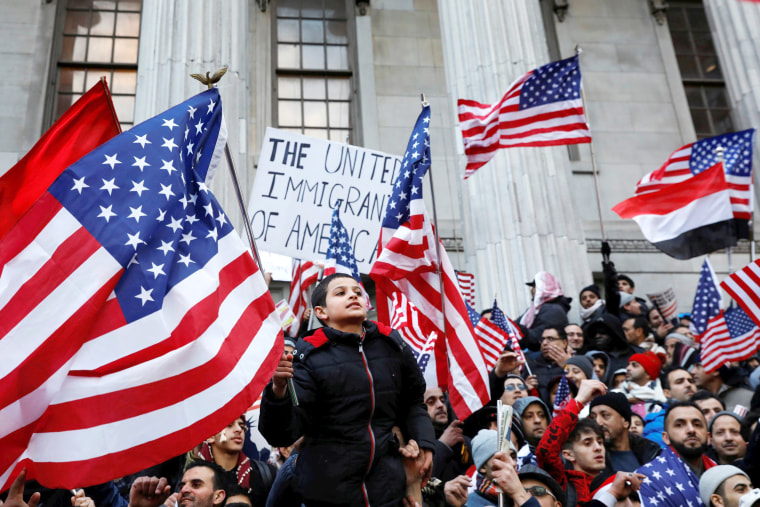WASHINGTON — The U.S. Supreme Court on Monday canceled a planned Oct. 10 legal showdown over the Trump travel ban, after the White House issued a proclamation Sunday imposing new restrictions on visas from eight countries.
The court ordered the Trump administration and the challengers of the executive order on travel to say whether Sunday's development means two lawsuits over the travel ban are now moot.
Their responses are due next Thursday. But for now, the cases are no longer scheduled for argument.
"The cases are removed from the oral argument calendar, pending further order of the court," the court said in a brief order.
Tom Goldstein, a Washington lawyer and publisher of the SCOTUSblog website, said the court's action "shows it has serious doubts that they will be deciding the fate of the old travel ban."
"To call off the argument suggests the justices think it may never happen at all," he said.
The new presidential order keeps restrictions on five of the six countries from the original travel ban — Iran, Libya, Somalia, Syria and Yemen. It lifts restrictions on visitors from the Sudan, and it adds new restrictions on visitors and immigrants from Chad, North Korea and Venezuela.
The Justice Department notified the court of the proclamation in a letter Sunday night. Solicitor General Noel Francisco recommended that the court direct both sides in the case to submit briefs, "addressing the effects of the Proclamation on the issues currently pending."
But he did not recommend calling off the October courtroom argument.
Monday's order does not necessarily doom the cases. The court could dismiss them, send the cases back to the lower courts for further proceedings, or put them back on the argument calendar later in the term.
But for now, Goldstein said, "the administration has dodged a bullet that could have limited the president's power," adding, "Mostly it's a fight avoided."
If the Supreme Court dismisses the cases, civil rights groups could file a whole new round of legal challenges to the revised executive order, which includes the proclamation limiting visas from eight countries.
A separate provision, restricting entry to the U.S. by refugees worldwide, is due to expire in late October, which some experts said might be another reason the court decided not to hear the case next month.
"You can see why it might be attractive to the court not to decide this," said Paul Clement, a former solicitor general, at a discussion last week on the coming court term sponsored by the Georgetown Law Center.

